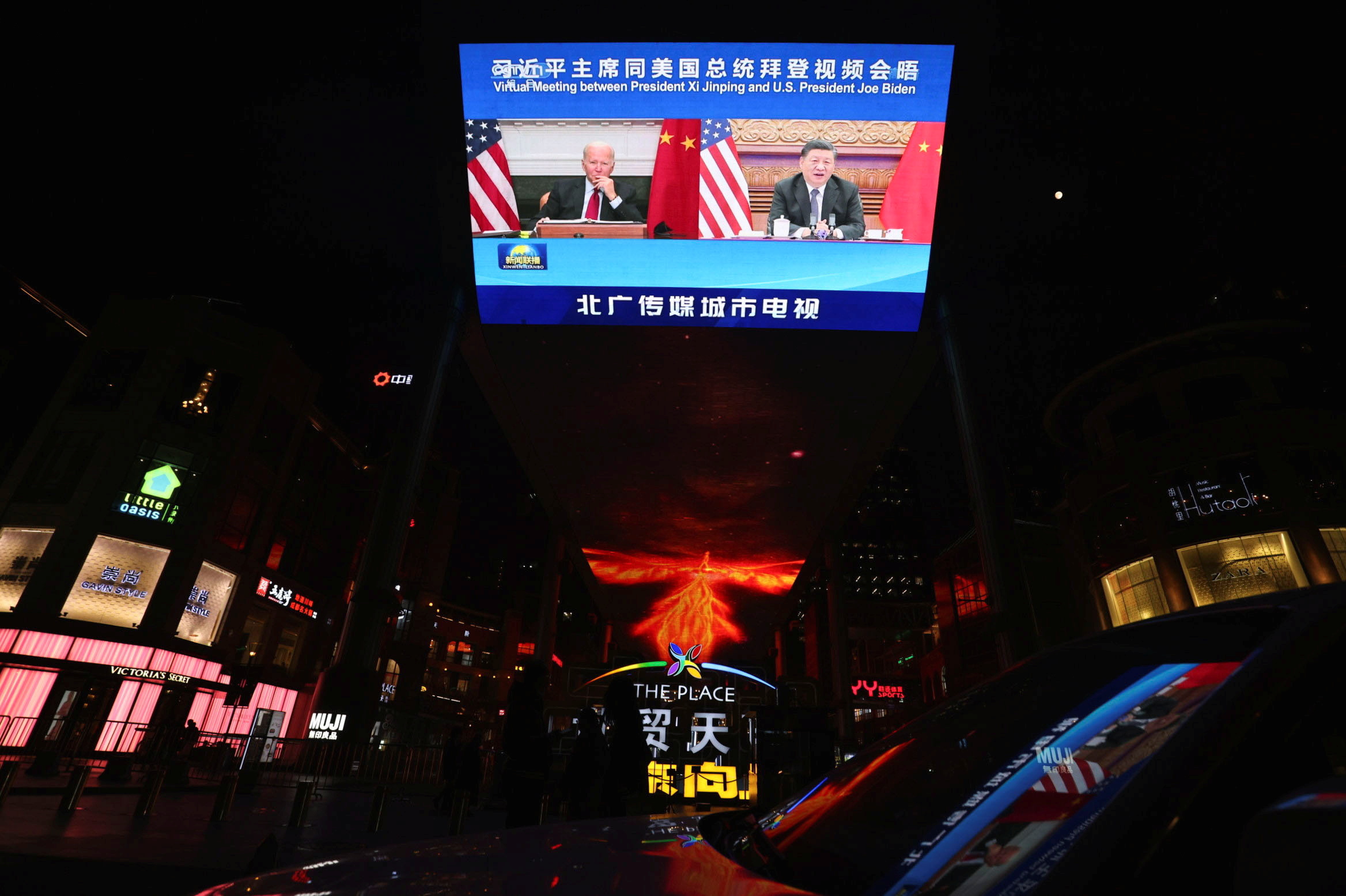Key issues discussed at Xi-Biden summit
Sign up now: Get insights on Asia's fast-moving developments

Chinese President Xi Jinping urged US President Joe Biden to guide US policy towards China back onto a rational and pragmatic track.
PHOTO: REUTERS
Chinese President Xi Jinping and his American counterpart Joe Biden held a virtual summit on Tuesday (Nov 16), discussing a wide range of issues including trade, climate change and the coronavirus pandemic.
In their first face-to-face summit, the leaders of the world's two biggest superpowers chatted for more than three hours - longer than expected.
Here are some of the key issues Mr Xi and Mr Biden discussed.
China-US ties
Mr Xi said China and the United States should strengthen communication and cooperation, and jointly promote peace and development globally.
The two powers must find the right way to get along, respecting each other, co-existing peacefully, and cooperating to ensure win-win situations, Mr Xi said, urging Mr Biden to guide US policy towards China back onto a rational and pragmatic track.
Mr Biden said both sides needed to improve their understanding of each other's intentions through open and frank dialogue to ensure that competition is fair and healthy and does not evolve into conflict.
The US does not seek to change China's institutions nor oppose it through alliances, and has no intention of engaging in conflict with China, he stressed.
The US is willing to work with China to respect each other, live together peacefully, strengthen communication, reduce misunderstandings, resolve differences in a constructive manner, strengthen cooperation in areas where the two powers' interests are aligned, and work together to address global challenges so that the people in both countries can live better lives, Mr Biden added.
Taiwan
Mr Xi ascribed current tensions in the Taiwan Strait to the repeated attempts by the Taiwan authorities to look to the US for support in their quest for independence, as well as the intention of some Americans to use Taiwan as an issue to contain China.
Beijing will take resolute measures if separatist forces for Taiwan independence "cross the red line", he said, warning that those who play with fire will burn themselves.
Mr Biden reaffirmed Washington's commitment to the "one China" principle, stressing that the US does not support Taiwan independence.
While he reassured Mr Xi that Washington's interest was in ensuring that there are no unilateral changes to the status quo, Mr Biden also raised concerns about some of Beijing's behaviours that he believed to be at odds with maintaining peace and stability in the Taiwan Strait.
Human rights and democracy
Mr Biden raised a range of human rights issues with Mr Xi, as well as broader concerns about the ways in which China appeared to be seeking to reshape the rules of international order.
Mr Xi said Beijing is willing to conduct dialogue on human rights issues on the basis of mutual respect, but does not approve of countries using these issues to interfere in the internal affairs of other nations.
On democracy, the Chinese President said that whether a country is "democratic" or not should be left to the judgment of the people of that country.
Democracy, in its various forms, is as colourful as civilisation itself, Mr Xi said, adding that it would be undemocratic to consider certain forms of democracy illegitimate just because they are different from some others.
Trade
Mr Xi pointed out that the nature of Sino-US trade ties is to strive towards mutually beneficial and win-win situations.
Beijing and Washington have to maintain macroeconomic policy communication to support the global economic recovery and prevent economic and financial risks, he said.
The US should stop abusing the concept of national security to suppress Chinese enterprises, he added.
Climate change
Climate change could become a new highlight of cooperation between the two countries, as they transition towards a green and low-carbon economy, Mr Xi said.
What has been promised must be done, the Chinese leader said, but he also noted that China, as the world's largest developing country, needs to strike a balance between addressing climate change and safeguarding its people's livelihoods.
He called for less blame shifting and more solidarity and cooperation, and for developed countries to fulfil their historical responsibilities and due obligations.
Public health security
Mr Xi said the most urgent task in the global fight against the Covid-19 pandemic now is to close the "vaccine divide".
China would consider more vaccine donations based on the needs of other developing countries, he said.
The world needs to adopt a scientific approach towards tackling major epidemics, and politicising such matters would do more harm than good, he said.


